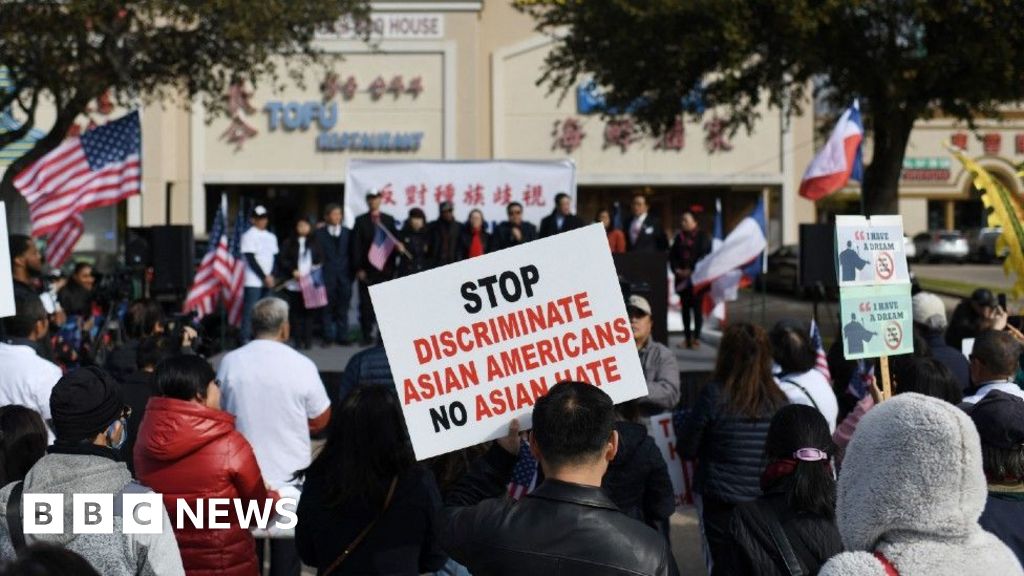As Reuters ‘Fact-Checked’ COVID Vaccine ‘Misinformation,’ Its CEO Also Sat on Pfizer’s Board

Source: Children’s Health Defense
During the COVID-19 pandemic, Reuters repeatedly fact-checked statements and articles that criticized COVID-19 vaccines — but not once did the news organization’s fact-checkers find fault with Pfizer, according to Paul D. Thacker, editor of The Disinformation Chronicle.
In an investigation released today, Thacker suggested why Reuters might have been quick to defend the vaccines. As it turns out, the former CEO of Reuters — who’s still on the board of its parent company, Thomson Reuters Foundation — has also been a board member of COVID-19 vaccine maker Pfizer since 2014. And as a board member, he was (and still is) required to own shares in Pfizer.
James C. Smith, also known as Jim Smith, served as CEO of Reuters from 2012 to 2020. Thacker described Smith’s dual roles with Reuters and Pfizer — and Reuters’ reporting on Pfizer and on criticism of the COVID-19 vaccines — as a conflict of interest.
“According to rules laid out by Pfizer, James ‘Jim’ Smith’s interests equals Pfizer’s interests,” Thacker wrote.
Thacker told The Defender that Reuters’ biased reporting and fact-checking during the COVID-19 pandemic prompted him to investigate the news giant further.
“Reuters Fact Check was so painfully biased in favour of Pfizer and other manufacturers that I was forced to look into this. That’s when I uncovered the ties between Reuters leadership and Pfizer’s board,” Thacker said.
In 2023, Children’s Health Defense (CHD) sued the Trusted News Initiative (TNI), a partnership formed by Reuters, The Washington Post, The Associated Press, BBC and other legacy media outlets “to tackle harmful disinformation in real time.”
The lawsuit alleges that TNI’s members violated U.S. antitrust law by colluding to suppress non-establishment narratives about the COVID-19 vaccines.
CHD CEO Mary Holland said she wasn’t surprised by Thacker’s investigation in light of the allegations CHD and its co-plaintiffs made in their lawsuit against TNI. She said:
“It’s no surprise that Big Pharma is cozy with Big Media — but the interlocking interests of Pfizer and Reuters go beyond coziness to entwinement.
“This twisted union is the more insidious because it’s part of a bigger collaboration — the Trusted News Initiative, uniting mainstream media conglomerates, including Reuters, with social media platforms to determine and root out ‘misinformation’ that counters their interests.
“It’s high time to expose these interconnections and to untangle them. Kudos to Paul Thacker for doing so.”
Reuters fact-checked RFK Jr., others, without disclosing ties to Pfizer
During the time that Smith maintained dual roles with Reuters and Pfizer, several Reuters fact-checks targeted statements made by Robert F. Kennedy Jr., now secretary of the U.S. Department of Health and Human Services (HHS), “without disclosing Reuters’ ties to Pfizer,” Thacker said.
The Disinformation Chronicle quoted an unnamed senior official at HHS who said, “We dealt with so much misinformation during the pandemic from the media. … When does this ever end?”
Thacker also referenced an Aug. 12 story by journalist Maryanne Demasi, Ph.D., who reported that last year, the medical journal Cureus retracted a peer-reviewed study by Japanese researchers that found a statistically significant rise in deaths from certain cancers in 2022, coinciding with the rollout of the COVID-19 vaccines.
Cureus retracted the paper after Reuters fact-checked it in May 2024. According to Reuters, there was “no evidence” of an “mRNA cancer ‘explosion’ in Japan.”
“Reuters fact checkers never seem to like studies or commentators critiquing COVID vaccines, and always seek to knock them down,” Thacker wrote.
Yet, according to Thacker, Reuters “ignored several times when Pfizer itself put out false COVID vaccine information” — even when other legacy media outlets reported the story.
In one example, The Telegraph reported last year that the Prescription Medicines Code of Practice Authority, the U.K.’s pharmaceutical watchdog, accused Pfizer of “bringing discredit” to the pharmaceutical industry for misleadingly and illegally promoting its COVID-19 vaccine.
According to Thacker, this was “the sixth time the British regulator reprimanded the pharmaceutical company over false promotion of their COVID vaccine” — but Reuters didn’t report on any of the six instances.
Thacker also cited an investigation he published in March, finding that Reuters fact-checkers repeatedly made scientifically false statements about the COVID-19 vaccines.
In one example, Reuters Fact Check claimed, “There is no proof that spike proteins created in response to mRNA vaccines are harmful to the body” — even though there are studies demonstrating the contrary.
According to Thacker, Reuters has not retracted any of its scientifically false fact-checks. “When I asked their reporter at the time if they were going to go back and fix several ‘fact checks’ that reported facts that were scientifically false, they didn’t respond,” Thacker wrote.
In 2021, Reuters announced collaborations with Facebook and Twitter — now known as X — to “fact check” social media posts and fight the spread of “misinformation,” without disclosing its ties to Pfizer or providing any criteria for defining “misinformation.”
Reuters denies conflict of interest, evades follow-up questions
As part of his investigation, Thacker contacted Reuters’ staff, including ethics editor, Alix Freedman, and Simon Robinson, Reuters’ executive editor, for comment. Robinson denied any conflict of interest. He wrote:
“The mission of Reuters Fact Check is to fact-check visual material and claims posted on social media. If a social media post concerns Pfizer and our team deems it newsworthy, Reuters fact-checks the post, not the company. We do not keep tallies of the number of articles on individual subjects.
“As our Standards and Values state, Reuters is editorially independent and does not alter our coverage of a company, government or institution to suit Reuters’ or Thomson Reuters’ commercial interests. Jim Smith’s membership on the Pfizer board would not be permitted to have any effect on our coverage and in fact never has.”
Robinson’s response left many questions unanswered, Thacker wrote:
“Robinson did not seem able to explain why Reuters rarely, if ever, fact checks Pfizer for their documented false statements about their vaccines, nor did he disclose how much Pfizer pays James ‘Jim’ Smith to be on the pharmaceutical company’s board while he also works for Reuters.”
In response to a follow-up question by Thacker about Smith’s work for Pfizer, a Reuters spokesperson asked Thacker to “please explain the basis for this question.”
Since 2021, Smith has also served on the board of the Brookings Institution. In 2020, a Brookings fellow suggested that people should be paid $1,000 to get a COVID-19 shot.
In 2021, Brookings hosted a discussion “on approaches for accelerating vaccinations against COVID-19 in Africa,” including strategies for “addressing vaccine hesitancy.”
Smith is also connected to the World Economic Forum (WEF). In 2019, he authored a Reuters article republished on the WEF’s website about the “digital future we need,” calling for strengthening online governance by enacting “new rules for a new game” and for “empowering users through digital identities.”
Smith, Freedman and Robinson did not respond to The Defender’s requests for comment by press time.
TNI members, including Reuters, developed ‘strategy to beat disinformation’
CHD’s lawsuit against the TNI alleges multiple instances of censorship by news organizations, including Reuters.
The lawsuit alleges that TNI violated the Sherman Antitrust Act by colluding with tech giants to censor independent news outlets in a move designed specifically to cripple the smaller publishers’ ability to compete.
The plaintiffs allege they were censored, banned, deplatformed, shadow-banned or otherwise penalized by the Big Tech firms that partnered with the TNI to censor views and content deemed “misinformation” or “disinformation.”
The TNI’s legacy media and Big Tech firms then acted in concert — described in legal terms as a “group boycott” — to remove such voices and perspectives from their platforms. The plaintiffs argue that this resulted in a significant loss of visibility and revenue for them.
Last month, the U.S. Department of Justice (DOJ) filed a statement of interest in support of the plaintiffs. In its 22-page filing in federal court, the DOJ argued that the TNI engaged in anticompetitive practices when its members colluded with tech platforms to censor alternative viewpoints.


This article was funded by critical thinkers like you.
The Defender is 100% reader-supported. No corporate sponsors. No paywalls. Our writers and editors rely on you to fund stories like this that mainstream media won’t write.
Reuters’ own institute describes ‘dip’ in public trust toward legacy news media
The Reuters Institute for the Study of Journalism, a TNI member, publishes an annual “Digital News Report.” This year’s report found that public trust in news in the U.S. is at 30% — a two percentage point decrease from 2024 and an eight percentage point decline since 2017.
Of the 48 countries surveyed in this year’s report, the U.S. ranked 39th in news trust.
“Overall trust remains at the lower end of our international survey, with most brands seeing a dip in their trust scores in the last year,” the report states.
For Thacker, Reuters and other major news organizations have contributed to declining public trust in the media.
“Public trust in legacy media plummeted during the pandemic for good cause. Legacy media has proven to the public that they are not to be trusted,” Thacker said.
“Every day, I get up in the morning and read several newspapers and come away confused about what is actually true and what is just narrative control that favors center-left, elitist political pieties. It’s very frustrating.”
Related articles in The Defender
- DOJ Backs Children’s Health Defense in Antitrust Suit Against Big Media
- CHD’s Antitrust Lawsuit Against Media Giants Gets Boost From DOJ
- CHD Sues Major Media Organizations Alleging Free Speech and Antitrust Violations
- Louisiana Attorney General Files Amicus Brief in CHD’s Landmark Suit Against Trusted News Initiative
- Conflict of Interest: Reuters ‘Fact Checks’ COVID-Related Social Media Posts, But Fails to Disclose Ties to Pfizer, World Economic Forum










